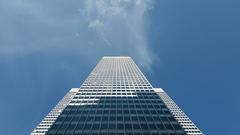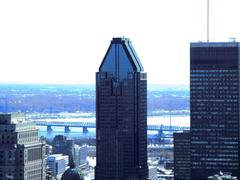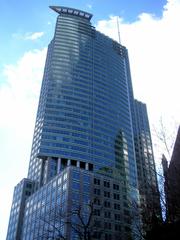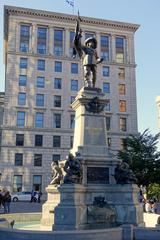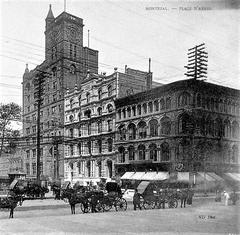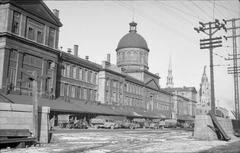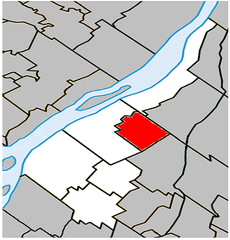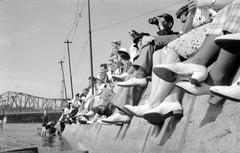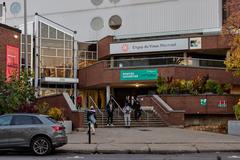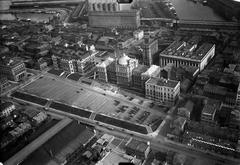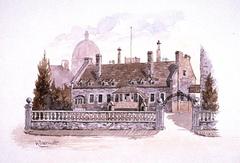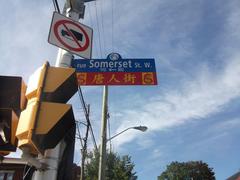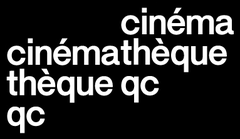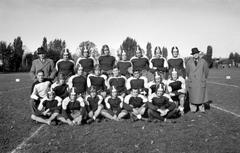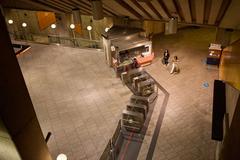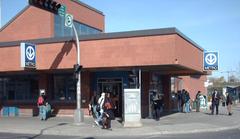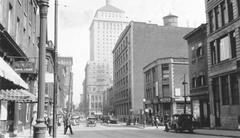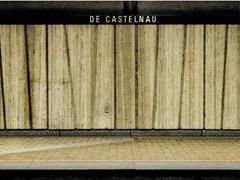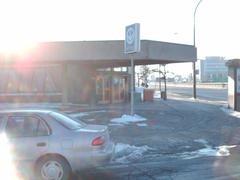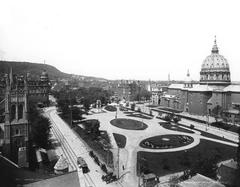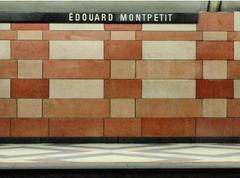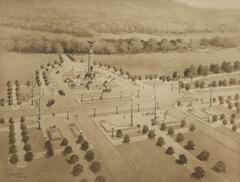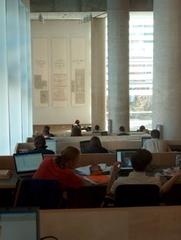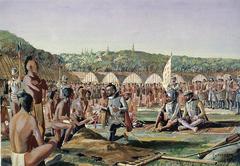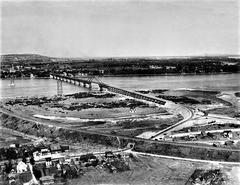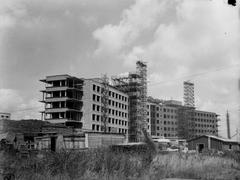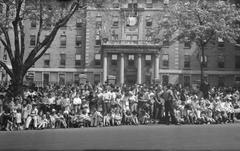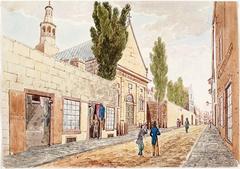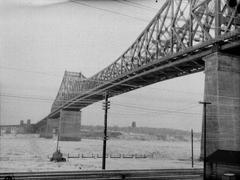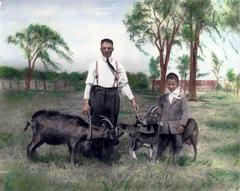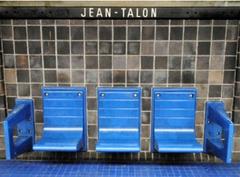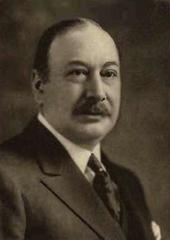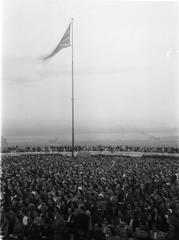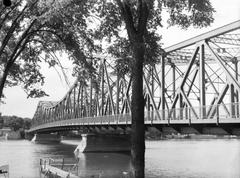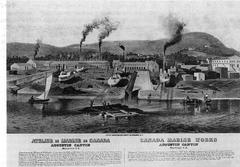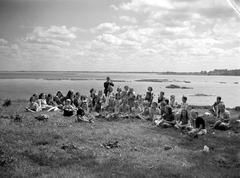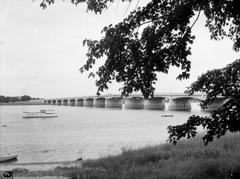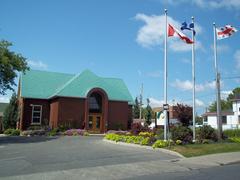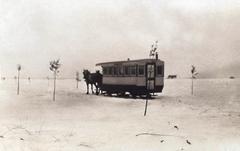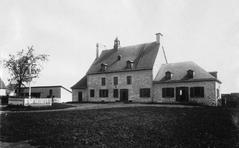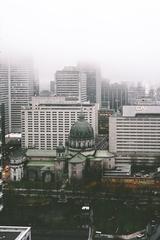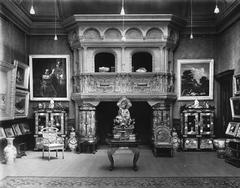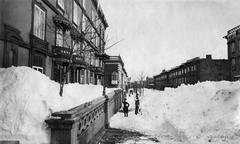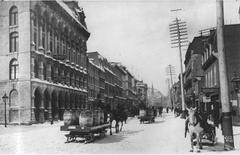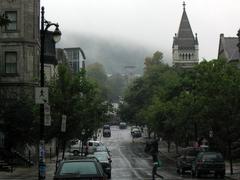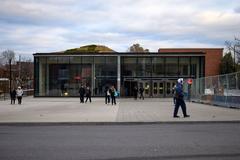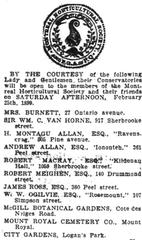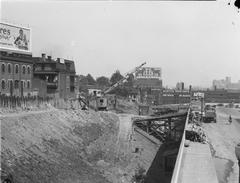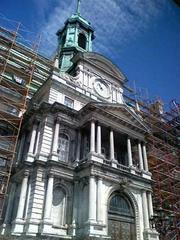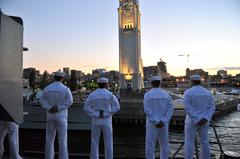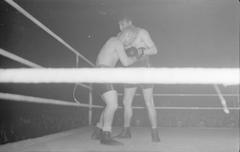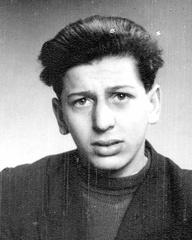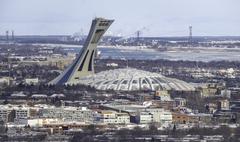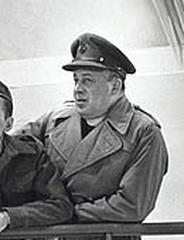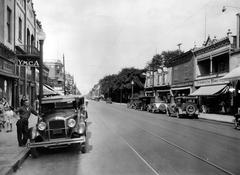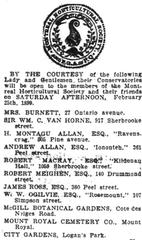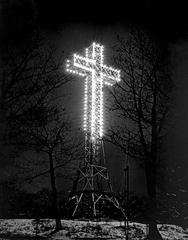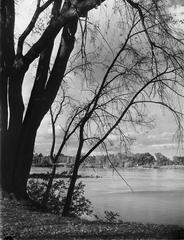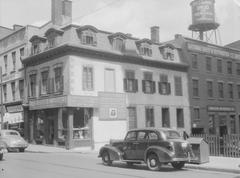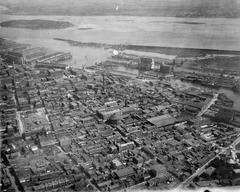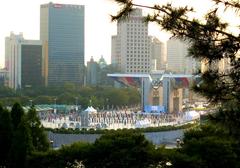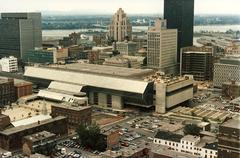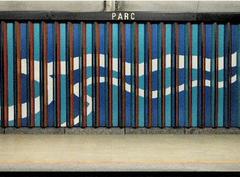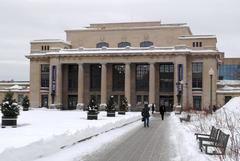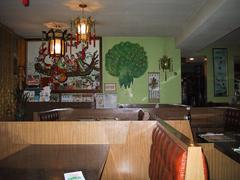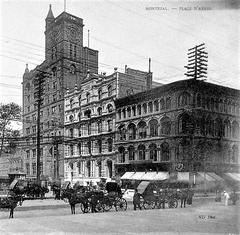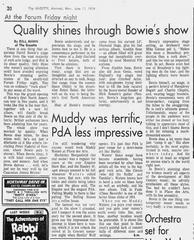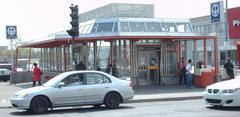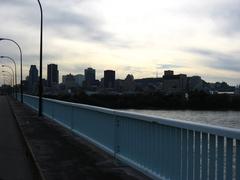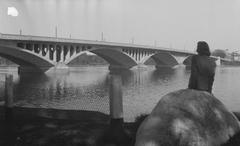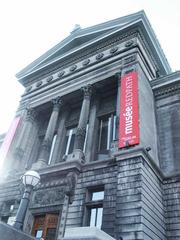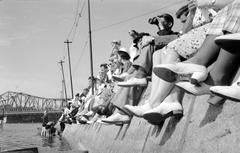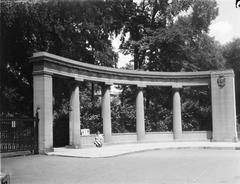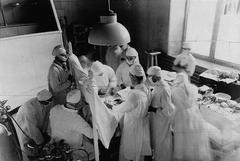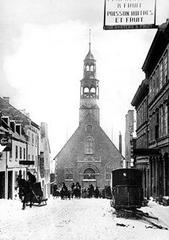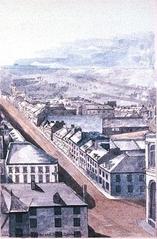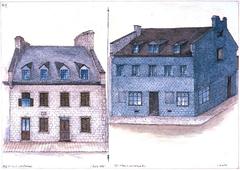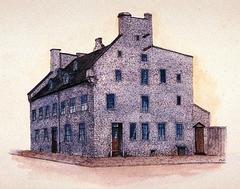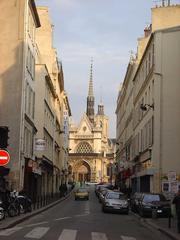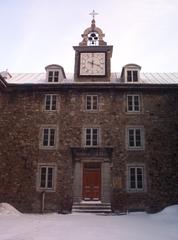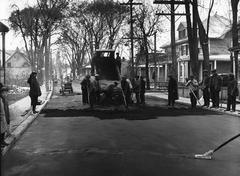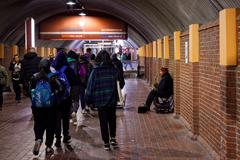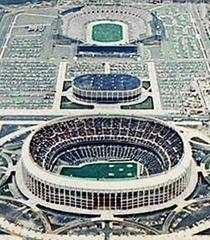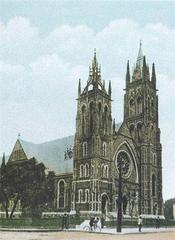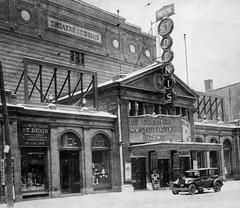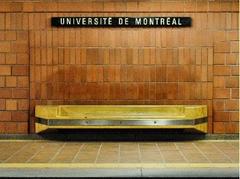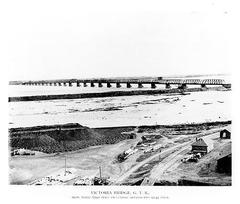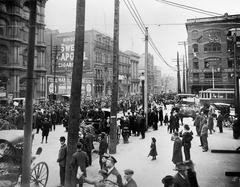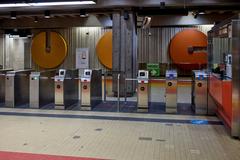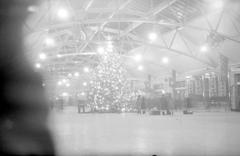Quebec Gay Archives Montreal: Visiting Hours, Tickets, and Historical Site Guide
Date: 04/07/2025
Introduction
Situated in the heart of Montreal’s dynamic Gay Village, the Quebec Gay Archives (Archives gaies du Québec, AGQ) is a cornerstone institution dedicated to preserving, documenting, and celebrating the diverse histories of Quebec’s LGBTQ2S+ communities. Established in 1983 to address the omission of queer narratives from mainstream archival institutions, the AGQ has grown from a grassroots initiative into one of Canada’s leading repositories of LGBTQ+ heritage. Visitors, researchers, activists, and tourists will find an extensive and unique array of resources—ranging from more than 76,000 photographs to organizational records, periodicals, and personal papers—chronicling decades of activism, social change, and everyday life.
The AGQ is not only a guardian of history but also a hub for community engagement, hosting exhibitions, public programs, and collaborations that shed light on intersectional and underrepresented voices. Conveniently located at 1000 Atateken Street, the AGQ offers free admission by appointment, with wheelchair accessibility and bilingual resources, ensuring an inclusive and welcoming environment.
This guide provides a detailed overview of the AGQ’s history, collections, visiting hours, accessibility, and tips for exploring the surrounding Gay Village, equipping you with everything needed for a meaningful and insightful visit. For ongoing updates and additional information, refer to the official Quebec Gay Archives website, MTL.org, and Fierté Montréal.
Table of Contents
- Introduction
- Quebec Gay Archives Visiting Hours and Location
- Historical Overview
- Collections and Archival Holdings
- Role in Community Memory and Activism
- Montreal’s LGBTQ+ Historical Milestones
- Planning Your Visit: Tips and Nearby Attractions
- Frequently Asked Questions (FAQs)
- Conclusion
- Additional Resources
Quebec Gay Archives Visiting Hours and Location
Address: 1000 Atateken Street, Suite 201-A, Montreal, QC H2L 3K5 (formerly Amherst Street), at the heart of the Gay Village.
Visiting Hours:
- Tuesday to Friday: 1:00 PM – 5:00 PM
- Saturday: 12:00 PM – 4:00 PM
- Closed on Sundays, Mondays, and public holidays
Admission: Free (donations appreciated).
Accessibility: The archives are wheelchair accessible. For specific accommodation requirements, contact the AGQ in advance.
Directions:
- Metro: Beaudry Station (Green Line)
- Multiple bus routes
- Paid parking available nearby
Contact:
- Phone: +1 514-287-9987
- Email: [email protected]
- Website: http://agq.qc.ca/en/home/
Historical Overview
Founding and Early Development (1983–1990)
The Quebec Gay Archives was founded in 1983 by Ross Higgins and Jacques Prince to address the absence of systematic LGBTQ+ documentation in provincial and national archives (AGQ History). Initially, materials were collected and stored privately or at the Montreal gay and lesbian community centre (CCGLM). The AGQ became a not-for-profit in 1985 and obtained charitable status in 1990, enabling its first major fundraising campaigns and strengthening community involvement.
Growth and Collection Expansion (1990s–2010s)
By centralizing its collections in a dedicated office from 1993, the AGQ became a hub for researchers and activists (AGQ History). Its holdings expanded to include organizational records, personal papers, photographs, and unique ephemera from groups like l’Androgyne and the Front de libération homosexuel (FLH), documenting pivotal movements such as the fight for civil rights and the community’s response to HIV/AIDS (MedHumanities). The AGQ relocated twice due to growth, finally moving to its present Atateken Street site in 2013 (MTL.org).
Collections and Archival Holdings
The AGQ is home to one of Canada’s most extensive LGBTQ+ archives, including:
- Photographs: Over 76,000 images, including Alan B. Stone’s iconic mid-20th-century works (Wikipedia; Historic Places Days).
- Posters and Periodicals: More than 1,700 posters and 800 periodicals reflecting activism and queer media.
- Archival Collections: 212 distinct collections—organizational records, personal papers, press clippings, books, audiovisual materials, and thematic files (MedHumanities).
- Private Collections: Including those of journalist Bernard Courte, activist Ken Morrison, and writer Marcel F. Raymond.
- Digital Resources: Online photo albums and the “Histoires de nos vies” series, recounting key events such as the 1977 police raids and the rise of Montreal’s Gay Village.
Role in Community Memory and Activism
The AGQ serves as a vital resource for academic research, public education, and activism. Its reading room doubles as a gallery for rotating exhibitions, fostering dialogue and community engagement (AGQ Home). The AGQ also publishes a regular bulletin, “L’Archigai,” which shares updates on projects, acquisitions, and upcoming events.
Community partnerships and public programming—ranging from guided tours to panel discussions—further amplify underrepresented voices and support ongoing advocacy.
Montreal’s LGBTQ+ Historical Milestones
Understanding Montreal’s LGBTQ+ history provides essential context for the AGQ’s mission:
- 1977 Police Raids: Raids on Le Truxx and Le Mystique bars catalyzed protests and led Quebec to become the first province to ban discrimination based on sexual orientation (MTL.org).
- Development of the Gay Village: The 1980s saw the emergence of the Gay Village as a center for activism and queer culture.
- Continued Advocacy: The AGQ’s archives document landmark moments in legal, social, and cultural history, reflecting ongoing struggles and triumphs (Fierté Montréal).
Planning Your Visit: Tips and Nearby Attractions
- Appointments: Recommended for research or guided tours; contact ahead to ensure access.
- Guided Tours & Events: Offered for groups and during special exhibitions—check the AGQ website and social media for updates.
- Photography: Permitted for personal research with staff approval; respect copyright and privacy restrictions.
- Explore the Village: Enjoy the Gay Village’s cafes, restaurants, shops, and public art. In summer, Sainte-Catherine Street becomes a lively pedestrian zone (Nomadic Boys Montreal guide).
- Nearby Cultural Sites: Visit the MEM – Centre des mémoires montréalaises, which often features complementary LGBTQ+ exhibitions (MEM exhibition info).
Accessibility and Visitor Guidelines
- Physical Accessibility: The AGQ is wheelchair accessible, but some areas (e.g., restrooms) may have limitations—contact ahead for details.
- Archival Etiquette: Handle materials with care; use pencils for notes; wash hands before handling documents.
- Safety & Local Customs: Montreal is LGBTQ+ friendly and safe. Respect archive protocols and local customs (e.g., no right turns on red lights) (NANOG Montreal tips).
Frequently Asked Questions (FAQs)
Q: Do I need to buy tickets?
A: No, admission is free; visits are by appointment.
Q: How do I book a visit?
A: Email [email protected] or call +1 514-287-9987 at least one week in advance.
Q: Are guided tours available?
A: Yes, for groups by prior arrangement.
Q: Is the archive accessible for people with disabilities?
A: The building is generally accessible; contact the AGQ for specific needs.
Q: Can I take photos?
A: With staff permission, for personal research only.
Conclusion
The Quebec Gay Archives is a living testament to the resilience and diversity of Quebec’s LGBTQ2S+ communities. Preserving stories often overlooked elsewhere, the AGQ enriches Montreal’s cultural fabric and offers visitors a meaningful connection to queer history. Whether you are a researcher, a member of the community, or a curious visitor, the AGQ provides an invaluable resource and a profound experience.
Plan your visit by arranging an appointment, explore the rotating exhibitions, and engage with the vibrant Gay Village. Stay informed on upcoming events and exhibitions via the AGQ’s website and social channels. By supporting and visiting the AGQ, you help ensure that the stories and contributions of Quebec’s LGBTQ2S+ communities continue to be celebrated and preserved.
Additional Resources
- Official Quebec Gay Archives Website
- Fierté Montréal – History of the Movement
- MTL.org – Historic Montreal LGBTQ+ Milestones
- MedHumanities – AGQ Overview
- Nomadic Boys Montreal guide
- MEM exhibition info
References
- Quebec Gay Archives: Visiting Hours, History, and Montreal LGBTQ+ Historical Site Guide
- Visiting the Quebec Gay Archives: History, Exhibitions, and Visitor Information in Montreal
- Visiting the Quebec Gay Archives: Hours, Exhibitions, and LGBTQ+ History in Montreal
- Quebec Gay Archives Visiting Hours, Tickets & Guide to Montreal’s LGBTQ+ Historical Site
- MTL.org – Historic Montreal LGBTQ+ Milestones
- Fierté Montréal
- MedHumanities – AGQ Overview
- Nomadic Boys Montreal guide
- MEM exhibition info
- NANOG Montreal tips
